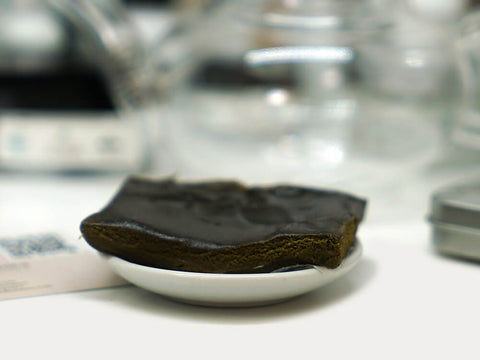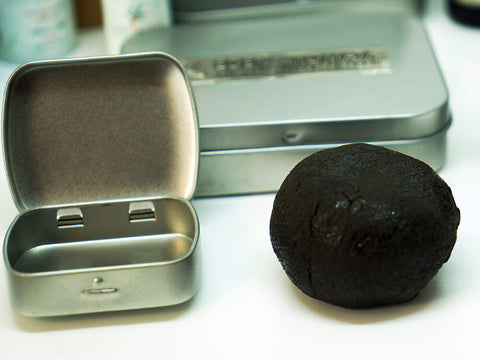Relieving Pain and Anxiety with Cannabidiol
The Science Behind CBD’s Pain-Relieving Effects
Cannabidiol, or CBD, is a non-psychoactive compound found in the cannabis plant, distinct from its more famous counterpart, tetrahydrocannabinol (THC). While THC is associated with the psychoactive effects of marijuana, CBD has garnered attention for its potential therapeutic benefits, particularly in the realms of pain and anxiety management.
This guide aims to demystify CBD, exploring its mechanisms of action, potential benefits, and risks. As interest in CBD as an alternative pain relief solution grows, understanding its role in the human body becomes increasingly important.
Understanding Cannabidiol (CBD)
CBD interacts with the body's endocannabinoid system, a complex network involved in regulating various physiological processes, including pain perception, immune response, and mood. Unlike THC, CBD does not induce a psychoactive high, making it an appealing option for those seeking potential therapeutic effects without mind-altering consequences.
The Role of CBD in Pain Management
Research indicates that CBD may offer relief for chronic pain, potentially aiding conditions like arthritis, multiple sclerosis, and neuropathic pain. By influencing the endocannabinoid system, CBD may alter pain perception and provide a natural alternative to traditional pain medications.
CBD and Inflammation
Inflammation is often a significant factor in pain, and CBD's potential anti-inflammatory properties could play a crucial role in pain management. This aspect of CBD's effects could be particularly beneficial for inflammatory conditions such as arthritis.
Is CBD Safe and Legal for Pain Relief?
While CBD is generally considered safe, it is crucial to consult healthcare professionals for guidance tailored to individual health needs and conditions. The legal status of CBD varies, so it's important for users to be aware of their local laws regarding its use. As with any treatment, the decision to use CBD should be made with full knowledge of its potential effects and legal implications.

Benefits of Cannabidiol CBD for Pain Relief and Anxiety
Cannabidiol (CBD) is a natural compound found in the cannabis plant that has been gaining popularity in recent years due to its potential benefits for pain relief and anxiety management. Unlike tetrahydrocannabinol (THC), another compound found in cannabis, CBD does not produce a psychoactive effect and is therefore legal in many countries. Here are some of the benefits of using CBD for pain relief and anxiety:
-
Reduces inflammation: CBD has been shown to have anti-inflammatory properties, which can help reduce pain and swelling associated with conditions such as arthritis and multiple sclerosis.
-
Relieves pain: CBD interacts with receptors in the brain and immune system to reduce pain perception. It has been used to treat chronic pain conditions such as neuropathic pain, fibromyalgia, and cancer-related pain.
-
Reduces anxiety: CBD has been shown to have anxiolytic effects, meaning it can help reduce feelings of anxiety and promote relaxation. It has been used to treat generalized anxiety disorder, social anxiety disorder, and post-traumatic stress disorder (PTSD).
Conventional Methods of Anxiety Management
Anxiety is a common mental health condition that affects millions of people worldwide. While cannabidiol (CBD) has gained popularity as a potential treatment for anxiety, there are also conventional methods that can be effective in managing anxiety.
Therapy

Therapy is a conventional method of anxiety management that involves talking to a mental health professional. Cognitive behavioral therapy (CBT) is a type of therapy that has been shown to be effective in treating anxiety.
Exercise
Regular exercise has been shown to be effective in reducing anxiety. Exercise releases endorphins, which are natural mood boosters. Activities such as jogging, yoga, and tai chi can be particularly helpful.

Meditation

Meditation is a mindfulness practice that involves focusing on the present moment. It has been shown to be effective in reducing anxiety and stress levels. There are many different types of meditation, including guided meditation and mindfulness meditation.
Dosage and Administration
Dosage
The appropriate dosage of CBD for pain relief and anxiety management can vary depending on the individual's weight, metabolism, and the severity of their symptoms. It is recommended to start with a low dose and gradually increase it until the desired effect is achieved. A general guideline is to take 1-6 mg of CBD for every 10 pounds of body weight.
Administration
CBD can be consumed in various forms such as oils, capsules, tinctures, edibles, and topical creams. The most common method of administration is through sublingual consumption, where CBD oil is placed under the tongue and held for 30-60 seconds before swallowing. This method allows for faster absorption into the bloodstream. Topical creams can be applied directly to the affected area for localized pain relief.
Different Forms of CBD for Pain Relief
Explore the various forms of CBD, including oils, capsules, and topicals, to find the best option for your pain relief needs.
Risks and Side Effects
While CBD is generally considered safe, there are some potential risks and side effects to be aware of.
Interaction with Other Medications
CBD can interact with certain medications, including blood thinners and anticonvulsants. It is important to talk to your doctor before using CBD if you are taking any prescription medications.
Dry Mouth
One common side effect of CBD is dry mouth. This can be alleviated by drinking plenty of water and staying hydrated.
Drowsiness
CBD can also cause drowsiness in some people. It is important to avoid driving or operating heavy machinery while using CBD.
Conclusion
In conclusion, cannabidiol (CBD) has shown promising results in relieving pain and anxiety. While more research is needed, current studies suggest that CBD can be an effective alternative or complementary treatment for those struggling with chronic pain and anxiety disorders. It is important to note that CBD is not a cure-all and should be used in conjunction with other forms of treatment as recommended by a healthcare professional.
Takeaways
- CBD has shown potential in relieving pain and anxiety.
- CBD should be used in conjunction with other forms of treatment as recommended by a healthcare professional.
- More research is needed to fully understand the effects of CBD on pain and anxiety.
















